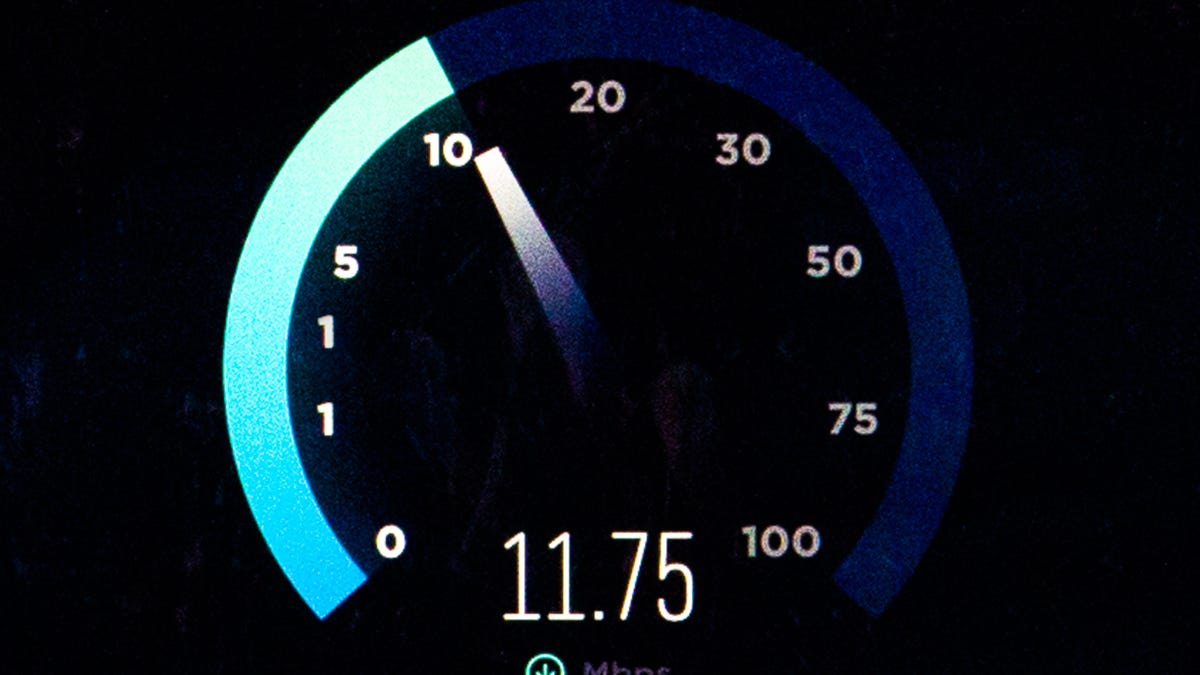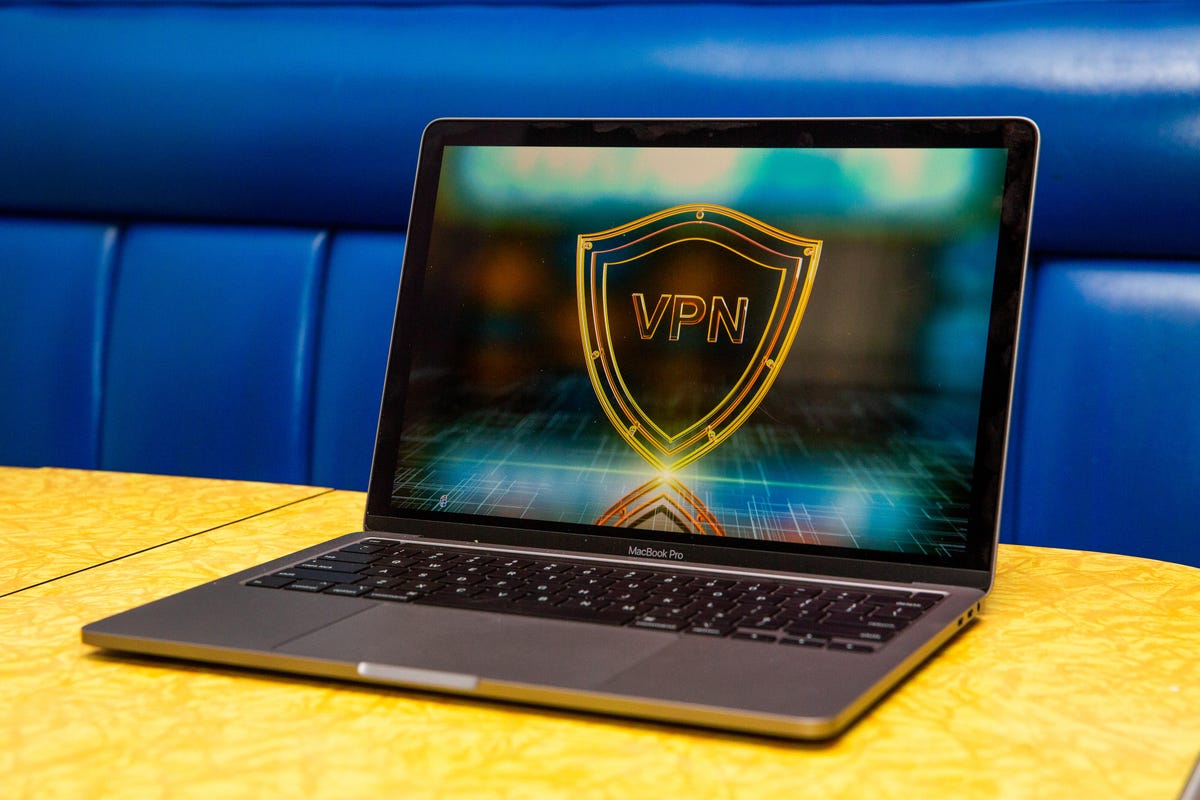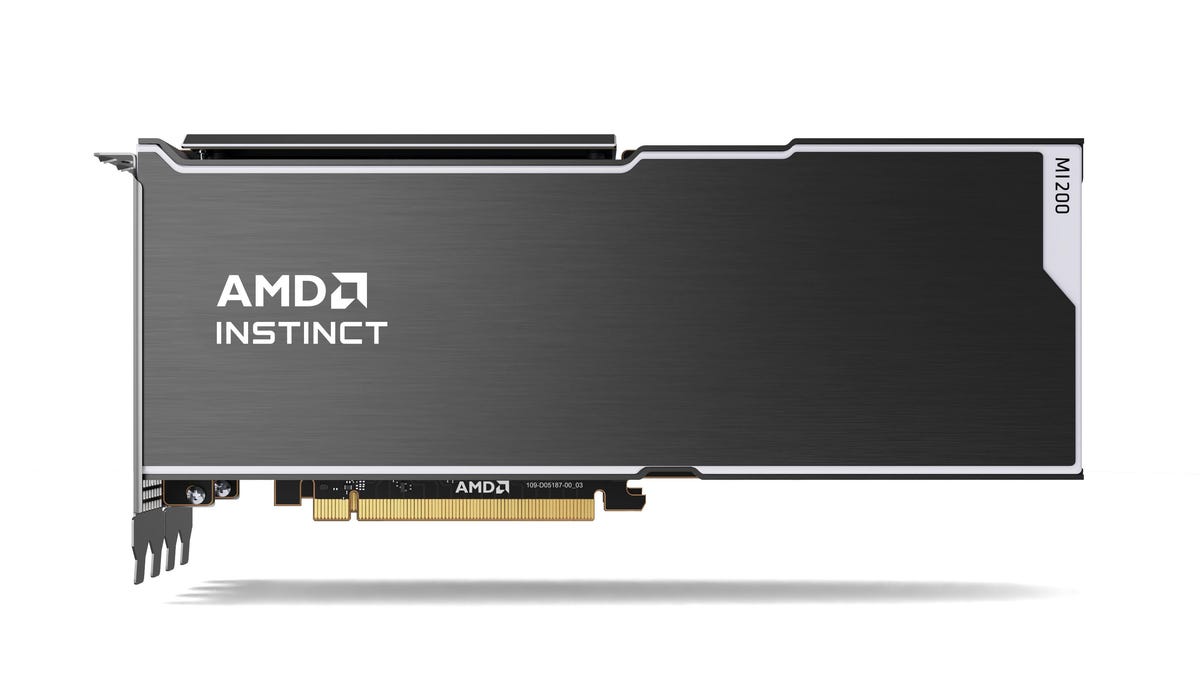Technologies
VPN Slowing You Down? Try These Steps to Speed Things Up
A VPN can cut your internet speed in half, which can be a real buzzkill if you’re gaming or streaming. Here’s how to speed things up.

Let’s face it: Using a virtual private network will slow down your internet — often by 50% or more.
It’s the nature of how VPNs work, and there’s really no way around it. However, there are a few things you can try to get the fastest possible speeds out of your VPN connection.
VPNs add a layer of encryption to your internet connection while routing your traffic through a secure server in a location of your choosing. This process is the main reason behind the speed loss. It takes time to encrypt and decrypt your traffic and for your data to make the round trip to the VPN server and back to your device.


Other factors can also have a hand in slowing your connection speeds, such as the VPN protocol you’re using or how many other people are using the same VPN server you’re connecting through.
The speed hit may be virtually imperceptible for normal internet use when you use a fast VPN, but you’ll want all the speeds you can get for data-heavy activities like gaming, streaming or video conferencing. A delay of even a few milliseconds can mean the difference between glory and failure in your online game. And slow VPN speeds can result in a ruined video streaming experience, spoiled by constant buffering and a heaping dose of pixelation. And if you’re using a VPN while on a Zoom call, you’ll want to do whatever you can to maximize your VPN speeds to ensure the call goes smoothly and doesn’t drop out.
If your VPN isn’t as fast as you need it to be, here’s what you can do to speed up your connection.
Read more: The Best VPNs, Tested and Rated
7 ways to improve your VPN speeds
Connect to a server closer to your physical location
Generally speaking, the closer the VPN server is to your physical location, the faster your connection speeds should be. Your traffic will have a shorter physical distance to cover when it’s routed through a VPN server that’s close by rather than one that’s halfway across the world. If you’re in Boston, your VPN connection should be a lot faster if you connect to a VPN server in New York City or Montreal than one in Sydney or Tokyo, for example.
This won’t always be practical if, say, you want to stream content from a specific country or access a gaming server from a particular location. But when you need a faster connection, try connecting to a few different VPN servers close to where you’re physically located and see which ones yield the fastest speeds. Some VPNs will have a speed test feature built into their apps, but you can always use a speed testing website like Ookla Speedtest to check the speed of your connection.
If you’re looking for a VPN with tons of server locations, try ExpressVPN, which offers servers in 160 locations across 94 countries — so you’re bound to find a few relatively close to where you are.
Connect to a server that isn’t overloaded
When too many people are using a single VPN server, the server can get overloaded and your connection speed can take a hit. Some VPN providers display the current server load on their servers either in the app itself or on the website. If you choose one with a lighter load, you’ll generally achieve faster speeds. If your VPN provider doesn’t display the current load on its servers, try connecting to a few different ones to see which gets you the fastest speeds. Sometimes, it just takes a little trial and error.


Your VPN will lower the speed of your connection, but you can try to minimize that hit.
Sarah Tew/CNETTry connecting via a different VPN protocol
A VPN protocol is a set of instructions between the VPN app on your device and the VPN server that determines how the secure connection is established. There are various VPN protocols and most providers give you the ability to choose between a few different options. Different protocols have different advantages and disadvantages in terms of speed and security, so if you connect via one VPN protocol rather than another, you can potentially boost the speed of your VPN.
Today, the gold standard VPN protocol is OpenVPN. It is the most battle-tested protocol, and it offers a nice combination of speed, stability and security — which is why many VPNs use OpenVPN as their default protocol. More and more VPN providers are now also offering newer VPN protocols like IKEv2 and WireGuard that promise faster speeds alongside excellent security. And some have even developed proprietary VPN protocols like ExpressVPN’s Lightway and NordVPN’s NordLynx that claim to offer the best of both worlds.
Switching to one of these other protocols, if offered by your VPN provider, can yield you faster connection speeds through your VPN. Just be aware that — though their security appears to be solid — these protocols haven’t been as thoroughly tested in the wild as OpenVPN, so they shouldn’t be your first choice for critical VPN use.
If you prefer to use OpenVPN exclusively, use UDP rather than TCP to get the best speeds. While TCP is typically the more stable option, it tends to be slower than UDP because it needs to send data packets in the right order and will wait for confirmation of receipt from the recipient prior to sending the next packet. UDP isn’t concerned about the order in which it sends data packets or getting any acknowledgment that they were received, so it tends to be much faster and more efficient, but less stable.
Most VPN apps allow you to change the protocol you connect through in their settings section, so try playing around with the protocol settings to see which ones get you the fastest speeds.
Enable split tunneling if available
If your VPN provider offers a split-tunneling feature, then try enabling it to see if you can boost your VPN speeds. Split tunneling allows you to send only the traffic you want through your VPN connection, while sending the rest unencrypted through your regular internet connection.
For example, if you’re using your VPN for streaming, you can allocate just your streaming traffic to go through the VPN, which won’t slow down your online gaming. This can help optimize your VPN speeds for certain activities, because all the excess traffic you don’t need running through your VPN won’t burden your bandwidth.
Use a wired connection
Using a wired connection will typically be faster than using your Wi-Fi. Chances are you’ve got several devices connected to your home Wi-Fi network all at the same time — devices that are all sharing and competing for resources on the same wireless channel. This can result in an unstable internet connection and, therefore, slower speeds. If you have the proper equipment, try establishing a wired connection by hooking your computer up directly to your router via ethernet cable and then connect to your VPN.
Close unnecessary apps running in the background
If you have apps running in the background that you’re not using, they could be taking up resources on your machine and slowing your connection. Take a minute to check if anything’s running in the background that you’re not using and close those processes. By clearing up potential bottlenecks like this, you might notice a faster connection.
Restart your router and other devices
When was the last time you restarted your devices? Just like anything else, tech like your computer and router occasionally need a little R&R. When you reboot your computer, you’ll give it a needed refresh, free up some RAM and get it working optimally. So, as cliche as it sounds, try turning it off and back on again, then see how your VPN speeds improve as a result.
Looking for more VPN info? Check out our other coverage:
Technologies
Meta and AMD’s Multibillion-Dollar Deal Is All About the AI Chips
Meta will take a stake in the chipmaker in exchange for a commitment to buy billions of dollars’ worth of AI chips.

Meta is joining OpenAI as one of the major tech companies to take a stake in chipmaker AMD, as part of an AI hardware buying frenzy. Meta and AMD on Tuesday announced a partnership that will involve CEO Mark Zuckerberg’s tech giant buying billions of dollars’ worth of AMD Instinct GPUs in order to fuel its ambitions to build out AI offerings across Meta platforms, including Instagram, Facebook and WhatsApp.
In a release, Meta described the deal as «multi-year,» and said the AI purchase will provide Meta with up to 6 gigawatts of AMD GPUs, «the silicon computing technology used to support modern AI models.»
According to the US Department of Energy, a single gigawatt (1 billion watts) is equivalent to nearly 2,000 large solar panels or 100 million LED bulbs.
In AMD’s version of the announcement, CEO Lisa Su said, «We are proud to expand our strategic partnership with Meta as they push the boundaries of AI at unprecedented scale.» As part of the deal, Meta will take a 10% stake in AMD.
AMD, based in Santa Clara, California, previously signed a deal with ChatGPT-maker OpenAI that it announced last October, which is similar to the Meta deal and also gives its AI rival 10% ownership of AMD.
(Disclosure: Ziff Davis, CNET’s parent company, in 2025 filed a lawsuit against OpenAI, alleging it infringed Ziff Davis copyrights in training and operating its AI systems.)
What does this mean for the rest of us?
AMD’s two megadeals may not have an immediate impact on people who use Meta’s social networking and communications apps, or even on those who buy AMD’s products, including desktop processors and graphics cards.
But it signals that large companies making huge bets on the future of AI are doing what they can to secure the hardware they need as supplies tighten and prices rise for components such as RAM. Some of those constraints aren’t expected to end anytime soon, and shoppers could begin to see prices rise even more than they already have for computers, smartphones, vehicles and other products that heavily rely on computing components like these.
It is also a sign that Meta’s ambitions for AI are not slowing down as it continues to compete with companies including OpenAI, Microsoft and Google to develop AI products and tools.
Also a factor: Meta’s push into wearables
Another reason AMD may want access to AI chips goes beyond its own data centers and online platforms: Meta has increasingly been focused on wearables such as its Oakley Meta AI Glasses and other potential new portable products.
In addition to what AMD’s GPUs can offer Meta for AI infrastructure power, AMD may also be part of its wearable future.
«With AI models requiring unprecedented processing power to process real-time data and information, Meta is focused on securing the supply chain necessary for its wearable devices,» said Michael J. Wolf, founder and CEO of the consulting firm Activate.
Wolf believes that the deals Meta and OpenAI have signed won’t be the last time a major AI-focused company locks down a supply of semiconductors.
«As consumer hardware transitions from smartphones to smart glasses, we will absolutely see more of these mega-deals,» Wolf said.
Technologies
Today’s NYT Connections: Sports Edition Hints and Answers for Feb. 25, #520
Here are hints and the answers for the NYT Connections: Sports Edition puzzle for Feb. 25, No. 520.

Looking for the most recent regular Connections answers? Click here for today’s Connections hints, as well as our daily answers and hints for The New York Times Mini Crossword, Wordle and Strands puzzles.
Today’s Connections: Sports Edition features a mix of difficulties. The green one is kind of fun today. If you’re struggling with today’s puzzle but still want to solve it, read on for hints and the answers.
Connections: Sports Edition is published by The Athletic, the subscription-based sports journalism site owned by The Times. It doesn’t appear in the NYT Games app, but it does in The Athletic’s own app. Or you can play it for free online.
Read more: NYT Connections: Sports Edition Puzzle Comes Out of Beta
Hints for today’s Connections: Sports Edition groups
Here are four hints for the groupings in today’s Connections: Sports Edition puzzle, ranked from the easiest yellow group to the tough (and sometimes bizarre) purple group.
Yellow group hint: Whack it!
Green group hint: Halloween colors.
Blue group hint: The airport is YUL.
Purple group hint: It’s also a hat.
Answers for today’s Connections: Sports Edition groups
Yellow group: To hit a baseball hard.
Green group: Orange and black teams.
Blue group: Associated with Montreal.
Purple group: ____ derby.
Read more: Wordle Cheat Sheet: Here Are the Most Popular Letters Used in English Words
What are today’s Connections: Sports Edition answers?
The yellow words in today’s Connections
The theme is to hit a baseball hard. The four answers are belt, blister, hammer and tattoo.
The green words in today’s Connections
The theme is orange and black teams. The four answers are Bengals, Flyers, Giants and Oklahoma State.
The blue words in today’s Connections
The theme is associated with Montreal. The four answers are 1976 Olympics, Canadiens, Expos and Youppi!
The purple words in today’s Connections
The theme is ____ derby. The four answers are home run, Kentucky, Merseyside and roller.
Technologies
Today’s NYT Mini Crossword Answers for Wednesday, Feb. 25
Here are the answers for The New York Times Mini Crossword for Feb. 25.

Looking for the most recent Mini Crossword answer? Click here for today’s Mini Crossword hints, as well as our daily answers and hints for The New York Times Wordle, Strands, Connections and Connections: Sports Edition puzzles.
I thought today’s Mini Crossword was a tough one! Read on for all the answers. And if you could use some hints and guidance for daily solving, check out our Mini Crossword tips.
If you’re looking for today’s Wordle, Connections, Connections: Sports Edition and Strands answers, you can visit CNET’s NYT puzzle hints page.
Read more: Tips and Tricks for Solving The New York Times Mini Crossword
Let’s get to those Mini Crossword clues and answers.
Mini across clues and answers
1A clue: Computer function represented by a floppy disk icon
Answer: SAVE
5A clue: Want more than anything
Answer: CRAVE
7A clue: Enticed, with «in»
Answer: ROPED
8A clue: In the company of
Answer: AMONG
9A clue: Something to do «like it’s 1999»
Answer: PARTY
Mini down clues and answers
1D clue: Something to do «like it’s 1999»
Answer: SCRAP
2D clue: Fragrance
Answer: AROMA
3D clue: What a humidifier emits
Answer: VAPOR
4D clue: Curling or speed skating, for the Winter Olympics
Answer: EVENT
6D clue: Risqué
Answer: EDGY
-

 Technologies3 года ago
Technologies3 года agoTech Companies Need to Be Held Accountable for Security, Experts Say
-

 Technologies3 года ago
Technologies3 года agoBest Handheld Game Console in 2023
-

 Technologies3 года ago
Technologies3 года agoTighten Up Your VR Game With the Best Head Straps for Quest 2
-

 Technologies4 года ago
Technologies4 года agoBlack Friday 2021: The best deals on TVs, headphones, kitchenware, and more
-

 Technologies5 лет ago
Technologies5 лет agoGoogle to require vaccinations as Silicon Valley rethinks return-to-office policies
-

 Technologies5 лет ago
Technologies5 лет agoVerum, Wickr and Threema: next generation secured messengers
-

 Technologies4 года ago
Technologies4 года agoOlivia Harlan Dekker for Verum Messenger
-

 Technologies4 года ago
Technologies4 года agoiPhone 13 event: How to watch Apple’s big announcement tomorrow
